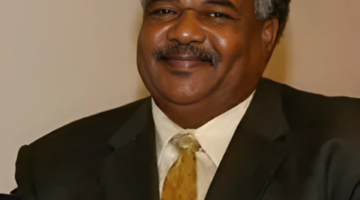 (Florida International University)- MIAMI – A fire truck in Liberty City is working overtime, but firefighters on the truck spend more time treating illness than dousing flames.
(Florida International University)- MIAMI – A fire truck in Liberty City is working overtime, but firefighters on the truck spend more time treating illness than dousing flames.
Miami-Dade Fire Rescue’s Aerial 2 truck is the busiest aerial ladder truck in North America, responding to 5,190 calls last year, according to a survey of 220 fire departments around the country.
It’s the third year in a row the station at Northwest 27th Avenue and Northwest 62nd Street ranked No. 1. But despite some of the area’s
urban violence, a sick baby is a more common patient than a gunshot victim.
“Many times we find that our urban cores tend to see high volumes of medical calls, which can come from density and population,” said Captain Luis Fernandez, a spokesman for Miami-Dade Fire Rescue. “Many residents don’t have the access to primary medical care and the first person they can see is a fire rescue professional.”
Jason Blasi, a firefighter paramedic who drives Aerial 2 agrees.
“Even though there is a lot of violent crime in Liberty City, a typical call would be a baby having a fever and the mother doesn’t know what to do,” he said.
The neighborhood’s
aging and sometimes poorly maintained property also play a role. “As the houses age, the electrical system ages, which can be extremely dangerous,” Blasi said.
Aerial 2 has a busy history. In 2010, it rolled on more than 5,200 calls. So far this year, it’s responded to more than 3,200 calls: 2,500 for medical emergencies, 525 for fires and 200 for any other kind of emergency.
Station 2 Captain Bill Gustin, who’s spent the past 34 years at the Liberty City fire station, said it’s always been that way.
“We’ve looked back at our log books and the call amounts have been the same since around 1987,” said Gustin.
Neighborhood violence also keeps the unit busy.
“Some of the calls can be very serious and involve more than one patient, like in a fight so that requires additional resources,” said Fernandez. Despite the challenges faced by the Station 2 crew, firefighters ask to work at the station.
“Many times they’ll go out of their way to provide aid and just to talk to people and get them the care they need,” Fernandez said.
Contact Melissa Caceres at mcace002@fiu.edu












No Comment